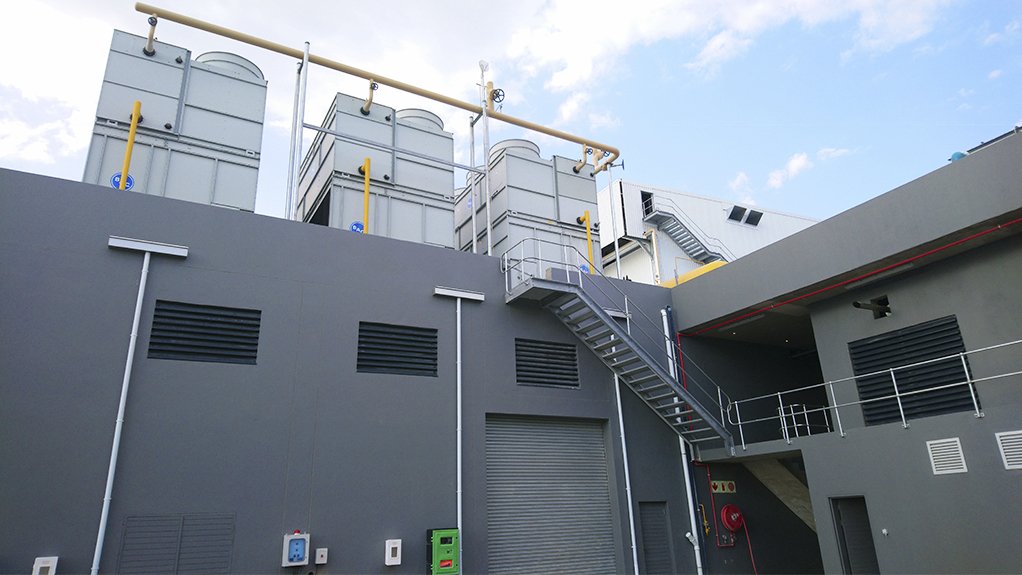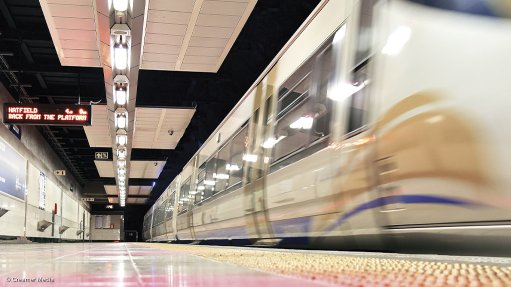Global citrus demand increases refrigeration demand


FRUITFUL SERVICES An increased need for refrigerated storage and transport capacity in the citrus sector is being addressed by EP Refrigeration
A global increase in demand for South African-grown citrus, as well as more export regulations, has resulted in a substantial increase in demand for refrigeration capacity, says local refrigeration manufacturer EP Refrigeration business development head Dawie Kriel.
“We not only need to add refrigerated storage space but also improve refrigerated transport capacity,” he tells Engineering News.
He says there was a global increase in demand for citrus with production growth from South Africa of about 15% in 2020, and projections for further growth in 2021.
“Once harvested, the fruit must be cooled to prevent spoiling. Some countries that we export to require cold sterilisation (low temperature holding process) in addition to ensuring the elimination of insect pests.
Prior to being shipped, all citrus must undergo various international checks and processes, done by industry body the Perishables Products Export Control Board in South Africa, to be allowed outside the country.
These checks and processes are also implemented at refrigeration logistics facilities throughout South Africa.
He enthuses that the increased demand for refrigeration has resulted in an increase in demand for EP Refrigeration’s servitisation, or Cooling-as-a-Service (CaaS) solution.
“New citrus processing and export facilities with high-tech cooling infrastructure is needed to keep up with demand. Projects of this nature take a year or more to plan and the skills level required to guarantee success is in scarce supply,” says Kriel.
Additionally, once installed, companies will need trained technicians to operate and maintain the system at peak efficiency, and CaaS offers exactly that, he adds.
All aspects of the mechanical cooling system can be managed – from construction to operation and maintenance – by an experienced CaaS provider.
“South Africa has high-quality skills available in the cooling sector. Amid the high tariffs for grid-based power, being able to access energy efficient cooling with no capital outlay provides companies – such as citrus producers – with a definite edge.”
Efficient Emission Elimination
Kriel points out that environmentally responsible refrigeration infrastructure is an essential resource in the processing and export of fresh produce such as citrus.
Consequently, over the past five years, the company has invested heavily in reducing the emissions produced by its refrigeration installations.
“Other than the focus on high efficiency, the choice of a refrigerant gas has the second biggest impact.
“EP Refrigeration has taken to using greener gases, which decrease carbon dioxide (CO2) emissions and improve productivity,” he says.
The gases currently preferred are ammonia and CO2, both being natural gases with very little global warming effect on release.
Kriel says EP Refrigeration has included ammonia in a significant number of its installations from its inception, and has used CO2 in four new installations more recently.
He does point out, however, that using natural refrigerants safely sometimes requires relatively new technology, which, although being used in more developed countries, is taken up in South Africa more slowly, owing to the technology required and training being unavailable locally.
He enthuses that using these gases can drastically decrease emissions of refrigeration systems, and in turn, decrease a client’s carbon footprint.
Article Enquiry
Email Article
Save Article
Feedback
To advertise email advertising@creamermedia.co.za or click here
Press Office
Announcements
What's On
Subscribe to improve your user experience...
Option 1 (equivalent of R125 a month):
Receive a weekly copy of Creamer Media's Engineering News & Mining Weekly magazine
(print copy for those in South Africa and e-magazine for those outside of South Africa)
Receive daily email newsletters
Access to full search results
Access archive of magazine back copies
Access to Projects in Progress
Access to ONE Research Report of your choice in PDF format
Option 2 (equivalent of R375 a month):
All benefits from Option 1
PLUS
Access to Creamer Media's Research Channel Africa for ALL Research Reports, in PDF format, on various industrial and mining sectors
including Electricity; Water; Energy Transition; Hydrogen; Roads, Rail and Ports; Coal; Gold; Platinum; Battery Metals; etc.
Already a subscriber?
Forgotten your password?
Receive weekly copy of Creamer Media's Engineering News & Mining Weekly magazine (print copy for those in South Africa and e-magazine for those outside of South Africa)
➕
Recieve daily email newsletters
➕
Access to full search results
➕
Access archive of magazine back copies
➕
Access to Projects in Progress
➕
Access to ONE Research Report of your choice in PDF format
RESEARCH CHANNEL AFRICA
R4500 (equivalent of R375 a month)
SUBSCRIBEAll benefits from Option 1
➕
Access to Creamer Media's Research Channel Africa for ALL Research Reports on various industrial and mining sectors, in PDF format, including on:
Electricity
➕
Water
➕
Energy Transition
➕
Hydrogen
➕
Roads, Rail and Ports
➕
Coal
➕
Gold
➕
Platinum
➕
Battery Metals
➕
etc.
Receive all benefits from Option 1 or Option 2 delivered to numerous people at your company
➕
Multiple User names and Passwords for simultaneous log-ins
➕
Intranet integration access to all in your organisation


















